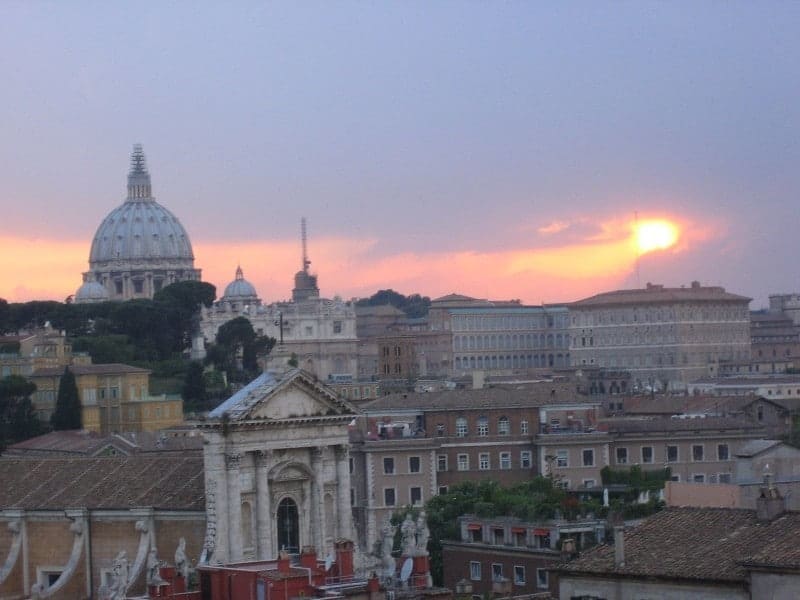In times of tumult such as these, both within and without the barque of Saint Peter, it is easy to become discouraged, exhausted, in a word, spent. Outside, unfamiliar turbulence can rack us, and, if that weren’t enough, tailor-made, all-too-familiar struggles, emanating from within the very depths of our souls, visit us with regularity. No one wrote more powerfully about this fight than Saint Paul.
Speaking about the Church, Pope Emeritus Benedict XVI, in his final General Audience, memorably and beautifully reflected on the rough waters this ship of Peter has traversed in recent years. He said,
I have felt like St. Peter with the Apostles in the boat on the Sea of Galilee: the Lord has given us many days of sunshine and gentle breeze, days in which the catch has been abundant; [then] there have been times when the seas were rough and the wind against us, as in the whole history of the Church it has ever been – and the Lord seemed to sleep. Nevertheless, I always knew that the Lord is in the barque, that the barque of the Church is not mine, not ours, but His – and He shall not let her sink.
I came across this excerpt from a book written by Margherita Guarducci entitled, The Primacy of the Church of Rome. It’s quite poignant and hopeful.
Rome in turn received from Christianity a unique privilege: that of a perennial vitality. Other famous cities of antiquity had died, one after the other, with the empires of which they had been the centers; Rome, on the other hand, remain and remains, thanks precisely to Christianity. In Rome, indeed, the fleeting empire founded by Augustus was succeeded by the perennial empire of the universal, that is “catholic”, Church, which by a singular concurrence of events-too singular to be considered anything but providential-Christianity had founded there.
But what was the reason for and, with it, the guarantee of the universality and thus of the perennial vitality of Rome? I believe that I am not mistaken in thinking of the presence, in Rome, of the tomb and of the exceptionally authentic relics of Peter, that is, of the apostle upon whom Christ himself declared that he would found his Church, promising that the powers of evil would not prevail against it.
This is, I believe, the secret whereby Rome, “the predestined city”, has resisted and resists the attrition of time and of human errors. ~ Margherita Guarducci, The Primacy of the Church of Rome: Documents, Reflections, Proofs, Ignatius Press
From Peter to Francis, and beyond, Christ doesn’t renege on his word.



